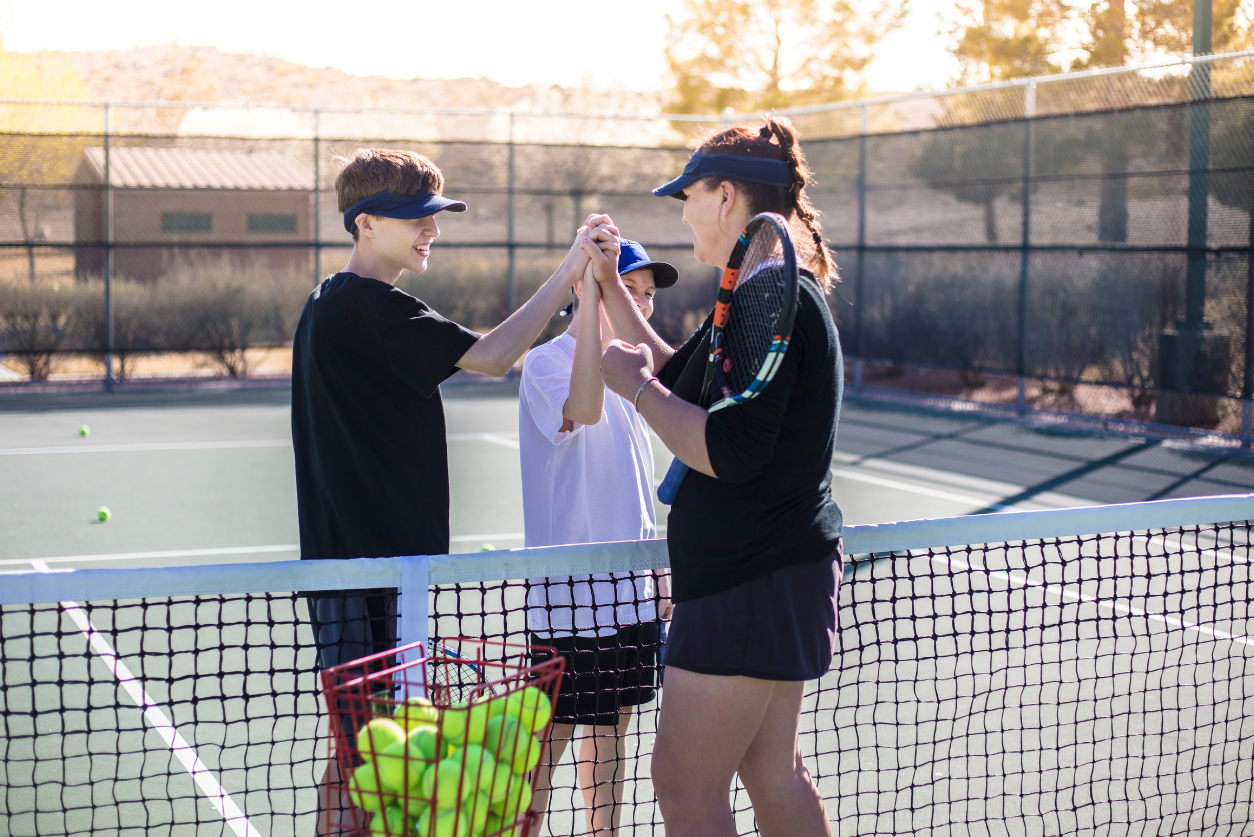Team sports are about more than just physical ability—they’re about trust, communication, and staying mentally strong together. While coaches often focus on plays and drills, there’s another side of performance that can’t be ignored: mental game coaching.
At Launch Sports Performance, we know that mental training helps individual athletes—and entire teams—stay focused, confident, and united under pressure. In this blog, we’ll explain how mental game coaching works in team sports and why it’s a game-changer for building mental resilience.
What Is Mental Game Coaching?
Mental game coaching teaches athletes how to improve their mindset, focus, and emotional control. It’s a big part of sports psychology and is designed to help athletes:
- Build confidence
- Manage pressure
- Communicate clearly
- Stay focused during competition
- Recover quickly from mistakes
When this kind of training is applied to team sports, it not only strengthens each player—it helps the whole team perform better together.
Why Team Sports Need Mental Game Coaching
In team sports like soccer, basketball, football, and volleyball, success depends on how well players work together. But challenges often arise:
- A few players lose confidence after a mistake
- The team struggles with nerves before a big game
- Communication breaks down under pressure
- One loss lowers the team’s energy and focus
That’s where mental game coaching makes a difference. It helps teams:
- Support each other through setbacks
- Focus on goals instead of distractions
- Build stronger communication and trust
- Develop shared routines and mindset strategies
Mental strength is contagious. When one player leads with confidence and focus, others often follow. When the entire team builds mental toughness together, they become more united and more competitive.
Key Benefits of Mental Game Coaching for Teams
Let’s take a closer look at how mental game coaching benefits team sports.
1. Stronger Communication
Great teams talk to each other clearly and effectively. Mental game coaching teaches athletes how to:
- Use positive language on the field or court
- Encourage teammates through ups and downs
- Stay calm during high-pressure moments
- Avoid blame or negative talk after mistakes
When communication improves, teammates trust each other more—and that builds better chemistry and performance.
2. Shared Focus Under Pressure
Distractions are everywhere during a game. Maybe the crowd is loud, or a ref makes a bad call. Mental coaching helps teams develop strategies to block out distractions and stay locked in together.
Coaches might introduce:
- Team cue words (like “reset” or “next play”)
- Group breathing techniques before game time
- Mental check-ins between plays
These tools keep the entire team focused on what they can control.
3. Collective Confidence and Support
Every athlete has tough days—but when a team is mentally strong together, they can lift each other up. Mental coaching helps athletes learn how to:
- Spot when a teammate needs encouragement
- Stay confident, even after missed plays
- Celebrate small wins together to build momentum
Confidence is easier to maintain when it’s a shared mindset, not just something individual players try to hold on to alone.
4. Faster Recovery from Mistakes
One bad play doesn’t have to define a game. Mental game coaching helps teams bounce back fast after mistakes. This is known as developing a reset mindset.
Teams can practice:
- A quick reset routine after turnovers or errors
- Positive body language after setbacks
- Group focus on “what’s next” instead of “what went wrong”
When everyone shares that attitude, one mistake doesn’t turn into a slump—it becomes a learning moment.
5. Improved Motivation and Accountability
When everyone on the team is working toward the same mental and physical goals, motivation grows. Mental coaching includes goal-setting exercises that help athletes:
- Set personal and team goals
- Stay accountable to each other
- Build a team culture of hard work and mental strength
This creates a winning environment where players push each other to grow, support each other, and compete with purpose.
Real-Life Team Impact
We’ve seen mental game coaching transform teams at Launch Sports Performance. Here are just a few examples:
- A soccer team that struggled with self-doubt learned to use cue words and visualization. They stayed confident in close games and won their league title.
- A volleyball team built a team mantra and pre-game routine that helped them feel calm and united before every match.
- A youth basketball team learned reset strategies that helped them stop dwelling on missed shots and refocus quickly during games.
The change wasn’t just in wins and losses—it was in how they played together, trusted each other, and stayed positive through challenges.
How Coaches Can Support Team Mental Training
Team coaches play a big role in mental game coaching. Even simple steps can make a big difference:
- Model positive self-talk during tough practices
- Encourage mental skill-building alongside physical drills
- Create a team culture where effort, focus, and communication matter as much as talent
- Bring in a mental performance coach (like those at Launch Sports Performance) to guide team sessions and strategies
By supporting mental training, coaches build stronger athletes—and stronger teams.
Final Thoughts
Mental game coaching is more than a personal benefit—it’s a powerful tool for team success. When athletes train their minds together, they become more confident, more focused, and more resilient—both as individuals and as a unit.
At Launch Sports Performance, we believe mental training is just as important as physical training. Our team-based coaching helps athletes grow their mindset, build communication, and develop the mental strength needed to win together.
Want to build a mentally stronger team? Contact us today to learn more about our mental game coaching programs for athletes and coaches.

